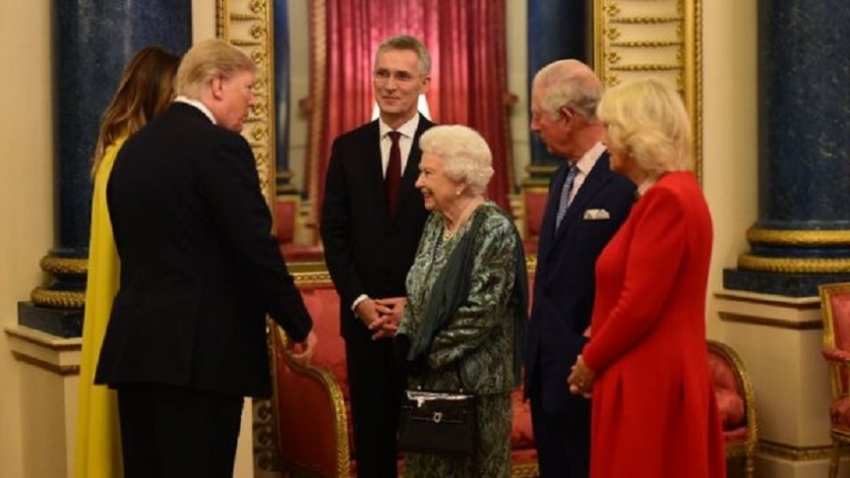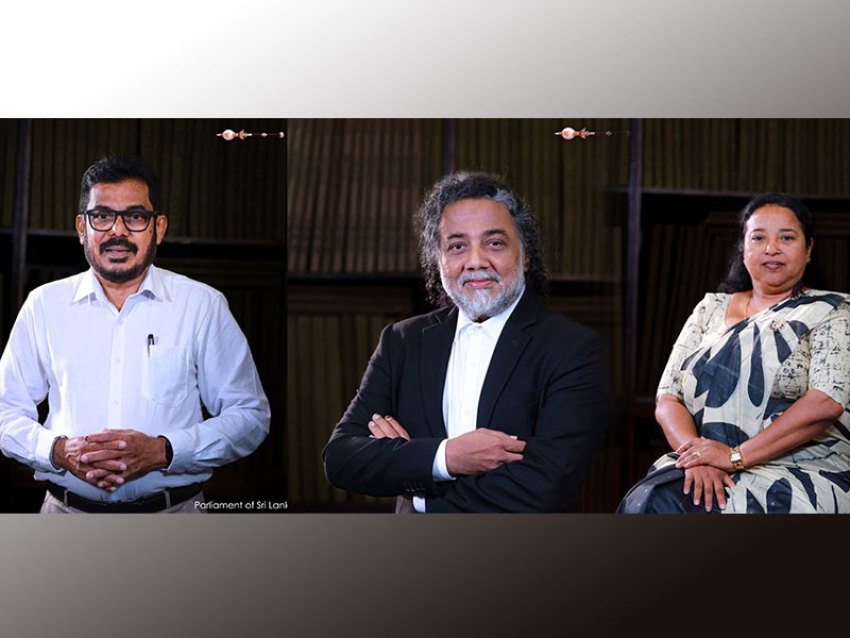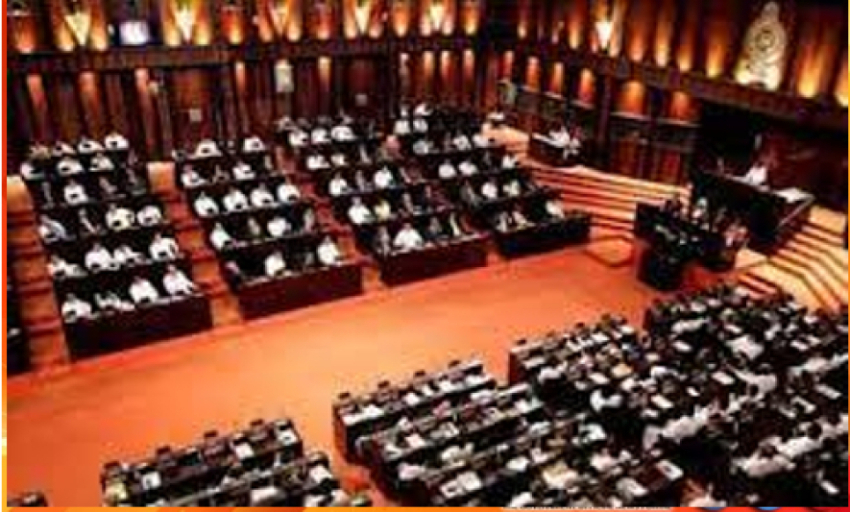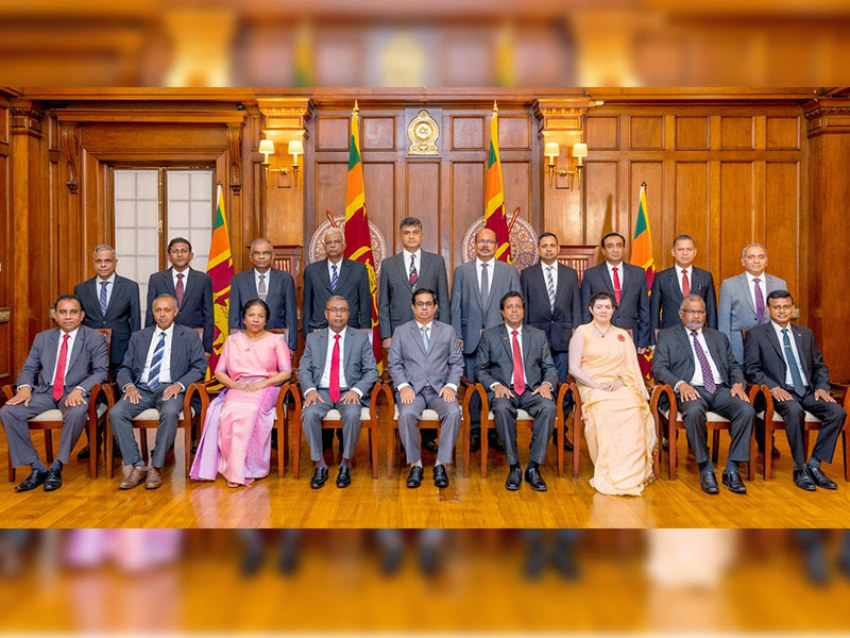Nato leaders are meeting near London, as tensions between members threaten to overshadow a summit marking the military alliance's 70th birthday. The three-hour talks are expected to cover issues such as cyber-attacks and the strategic challenge posed by China.UK Prime Minister Boris Johnson, the host, is set to remind members that the commitment to defend one another is at the heart of the alliance. Tuesday saw sharp exchanges between the US and French leaders over many topics.The highly choreographed anniversary gathering, intended to show unity, has been unable to hide deep differences between Nato members, BBC defence correspondent Jonathan Beale reports.Although the 29-member bloc's future is not in doubt, there are disagreements over Turkey's recent military action in northern Syria, the levels of military spending by members and recent controversial comments by French President Emmanuel Macron that the alliance is "brain dead".The gathering at a luxury hotel near Watford follows receptions held on Tuesday at Buckingham Palace and Downing Street. Mr Johnson is expected to say the alliance protects "nearly a billion people" under a principle of "one for all, and all for one".
What happened on Tuesday? The first day of the special anniversary summit saw tensions bubble to the surface. US President Donald Trump and Mr Macron met for talks and in a news conference sparred over Nato's role, Turkey, and Islamic State group (IS) fighters. Ties between Mr Trump and Mr Macron were already strained amid a dispute over taxes and trade, and comments from the French president last month that the US commitment to the alliance was fading.
Mr Trump had earlier hit back by saying the French leader had been "very disrespectful" by describing Nato as "brain dead" in what he said were "nasty" comments. Mr Macron then said he stood by his words.On Tuesday, Mr Macron also attended a meeting in Downing Street with Turkish President Recep Tayyip Erdogan, German Chancellor Angela Merkel and Mr Johnson.Meanwhile, President Trump and Mr Johnson held unscheduled bilateral talks. Ahead of Wednesday's talks, Mr Trump tweeted they both had "talked about numerous subjects including Nato and trade."Nato leaders attended a reception hosted by the Queen and Prince of Wales on Tuesday
Nato started out in 1949 with just 12 countries as members but having now expanded to a bloc of 29 it is increasingly difficult for the alliance to project a united front. Two key issues have loomed over this summit: defence spending - a longstanding issue of concern for the US, which militarily dominates the group - and relations between Turkey and other member states. The Queen talks to President Trump and his wife Melania during the reception at Buckingham Palace Before departing for London, Mr Erdogan said he would oppose a Nato defence plan for the Baltic region if the bloc did not support Turkey over its fight against Kurdish groups in Syria it considers terrorists.But other leaders, including Mr Macron, have made clear they oppose such a move, not least because Kurdish-led forces drove IS militants out of a quarter of Syria with the help of a US-led multinational coalition.
Turkey's relations with other Nato members have been strained since it started a military offensive in Kurdish-controlled areas of northern Syria in October. That followed the decision by President Trump to withdraw US troops from the region, reportedly without consulting allies."When I look at Turkey, they now are fighting against those who fought with us shoulder to shoulder against [IS]," the French president said alongside Mr Trump.
Mr Erdogan's decision to buy the S-400 Russian missile defence system has further exacerbated tensions. Mr Trump said he was "looking at" imposing sanctions over the deal while Mr Macron asked: "How is it possible to be a member of the alliance... and buy things from Russia?"Since becoming US president in 2016, Donald Trump has frequently and forcefully criticised how much other Nato allies spend on defence.Nato Secretary General Jens Stoltenberg announced increased spending commitments ahead of the UK meeting and discussed the matter with President Trump on Tuesday."We are making real progress, most importantly on the burden sharing. And your leadership on defence spending is having a real impact," Mr Stoltenberg said at an appearance alongside the US president.He said Canada and European allies had added $130bn to defence budgets since 2016 and that this number would increase to $400bn by 2024.Nato estimates for 2019 show there are now eight countries - in addition to the US - meeting the target agreed by all Nato members to spend 2% or more of their gross domestic product (GDP, a measure of economic output) on defence.
Troubled Nato not in party mood for 70th birthday
Seventy years of existence is clearly worth celebrating, but Nato is strangely low-key about this week's brief gathering of alliance heads of state and government outside London.Nato spokesmen reject the label of "summit", insisting that this is really a lesser affair; that there was a full-scale summit only last year; and that this gathering will not release the traditional lengthy communiqué of conclusions and future plans.Why so reticent? This is after all what many Nato advocates call, with some justification, the most successful military alliance in history.
Nato was founded in 1949 for the collective defence of its members, linking the security of the United States with its European allies against the Soviet Union. It witnessed the end of communism, defeating the Soviet bloc without firing a shot.It went to war for the first time in the Balkans in the 1990s. It then set out on a new path - so-called "out of area" operations beyond Nato's frontiers, notably its operations in Afghanistan and the wider war against terror.
Nato also set about a programme of expansion, nearly doubling in size. Today it has 29 members and North Macedonia is soon to join its ranks. Nato - which is as much a diplomatic as a military alliance - has played a key role in stabilising the new democracies of Europe, whether it be in the Baltic or the Balkans, giving them a new self-confidence and locking them into a formidable security framework. But has this actually produced a stronger Nato?The respected British defence analyst Professor Michael Clarke says "no".US President Harry Truman marks the beginning of Nato in 1949"Nato is indeed the greatest alliance the world has ever seen," he told me, but "today with some thirty members, it is less than half as strong as it was when it was half this size."Nato is in trouble", he argues, "even though it's still got lots of capabilities".Nato expansion is seen within the alliance as a good thing. Secretary General Jens Stoltenberg described it to me as a "historical success", the alliance helping to spread democracy and the rule of law.
Expansion has brought Nato's frontiers 1,000 miles (1,600km) closer to Moscow.Countries once occupied by the Red Army and incorporated into the Soviet Union, like the three Baltic republics, or former Warsaw Pact allies of Moscow like Poland, are now firmly in Nato's orbit, and Russia's President Vladimir Putin does not like this.
Russia is pushing back in every way it can, bolstering its nuclear arsenal and seeking to renew its influence abroad. Its controversial but successful campaign to prop up the Assad regime in Syria is a case n point.Nato led a peacekeeping mission in Kosovo after bombing Yugoslavia in 1999In Europe, Russia is criticised for cyber attacks; information operations to try to influence elections; even political assassination in the wake of a radiological and a chemical weapons attack - the former in London, the second in Salisbury in southern England.
The latter attack in Salisbury - which Moscow strenuously denies - prompted a mass expulsion of Russian diplomats and intelligence officers from Nato countries.Many have spoken of a new Cold War. But this one is very different from that of the 1950s and 1960s.
Russia's power and influence is a shadow of that of the former Soviet Union's. This is a kind of shadow conflict waged below the threshold of combat, in what analysts call "the grey zone", where it is hard to assign blame for intrusive actions like cyber attacks or hacks against computers."There is a problem of political consensus in the western world and so we make it easy for Mr Putin," Mr Clarke says."Russia," he argues, "will be a real nuisance to Nato for the next ten or twenty years."But they should not be a strategically important challenge to us unless we let them."
President Putin has warned the West not to cross "red lines", meaning Russia's national security interestsRussia is simply using the intrinsic weaknesses of the West to further its own goals, he says."If the Western world and if the Western democracies are not sufficiently cohesive to deal with this threat - and at the moment I have to say they're not - then the Russians will actually play a big role in European security for the future.They'll dominate the agenda. They'll constrain people's choices. They'll intimidate and they'll use a certain amount of not very subtle blackmail."This Nato "summit" is all about demonstrating solidarity and resolve and also about charting a path for the future. But in the days leading up to the meeting there has been more than a hint of the problems behind Nato's ceremonial façade.
Nato has proudly announced new spending projections which show that the defence budgets of its European allies will grow further in the years ahead.It has also agreed a new formula to spread the costs of Nato's central budget between its members; a budget that covers its headquarters in Brussels and other commonly funded programmes.The US in this case will pay less and Germany, which lags behind in the proportion of its resources that it devotes to defence, will pay more.It is all an effort to mollify President Donald Trump and to avoid another embarrassing tirade from him aimed at his Nato partners. The burden-sharing debate has long dogged Nato. Mr Trump did not invent it.
But he seems to take a peculiarly transactional approach to the alliance, and often does not seem to share a fundamental sense that the survival of a healthy Nato is as much in Washington's interests as it is in those of its European allies.
Nonetheless, Nato governments have committed to spending at least 2% of their GDP on defence; and many of them are still far from that benchmarkBut this focus on funding obscures other problems. Frustration is growing and this is what prompted the French President Emmanuel Macron recently to describe Nato as strategically "brain-dead".Far from regretting his comments, he amplified them last week, insisting that the alliance needed to stop talking about money all the time and spend more time dealing with its fundamental strategic problems.Only days before this week's summit, a row erupted between France and Turkey. It illustrates how events in north-eastern Syria are straining relations within Nato.President Macron has repeatedly criticised both Washington's abrupt withdrawal of support for the Kurds and Turkey's related offensive into Syria - two strategic decisions that were taken without consulting other Nato allies.
Turkey sees France as far too friendly towards the Kurds. It wants Nato as a whole to back its position in Syria.This episode underscores another fundamental problem for the alliance: what many see as Turkey's drift away from Nato and the West.Ankara's purchase of a sophisticated Russian air defence system is an extraordinary step for a Nato ally.The problem is that Turkey's size and geographical position make it an important, albeit for many troublesome, partner in Nato, despite some analysts questioning if it really should still be in the alliance at all.
So, Turkish and US unilateralism; rows over money; a resurgent but ill-defined Russian threat - there's plenty for Nato leaders to talk about when they meet in a luxury resort hotel near Watford, a town best known by many for its nondescript railway junction.Nato too is at a kind of a junction itself. It has many of the problems of success. Many of the decisions it has taken - its expansion to bring in so many new members for example - were driven as much by politics as by strategy.
Turkish and Russian forces are carrying out joint ground patrols in northern SyriaBut the world has changed dramatically since Nato's founding. It is very different again from the world of the 1990s, in which Nato basked in its victory in the Cold War.President Macron's label of "brain dead" may be going a bit far. But he has a pointNato leaders need to get back to strategy, to the big thoughts about where the alliance should be heading.How will it contend with the Russian threat? Does it need to rethink its strategy? Should Nato have a common approach to a rising China? What should be Nato's priorities in the 21st-Century world?
Nato leaders are meeting near London, as tensions between members threaten to overshadow a summit marking the military alliance's 70th birthday. The three-hour talks are expected to cover issues such as cyber-attacks and the strategic challenge posed by China.UK Prime Minister Boris Johnson, the host, is set to remind members that the commitment to defend one another is at the heart of the alliance. Tuesday saw sharp exchanges between the US and French leaders over many topics.The highly choreographed anniversary gathering, intended to show unity, has been unable to hide deep differences between Nato members, BBC defence correspondent Jonathan Beale reports.Although the 29-member bloc's future is not in doubt, there are disagreements over Turkey's recent military action in northern Syria, the levels of military spending by members and recent controversial comments by French President Emmanuel Macron that the alliance is "brain dead".The gathering at a luxury hotel near Watford follows receptions held on Tuesday at Buckingham Palace and Downing Street. Mr Johnson is expected to say the alliance protects "nearly a billion people" under a principle of "one for all, and all for one".
What happened on Tuesday? The first day of the special anniversary summit saw tensions bubble to the surface. US President Donald Trump and Mr Macron met for talks and in a news conference sparred over Nato's role, Turkey, and Islamic State group (IS) fighters. Ties between Mr Trump and Mr Macron were already strained amid a dispute over taxes and trade, and comments from the French president last month that the US commitment to the alliance was fading.
Mr Trump had earlier hit back by saying the French leader had been "very disrespectful" by describing Nato as "brain dead" in what he said were "nasty" comments. Mr Macron then said he stood by his words.On Tuesday, Mr Macron also attended a meeting in Downing Street with Turkish President Recep Tayyip Erdogan, German Chancellor Angela Merkel and Mr Johnson.Meanwhile, President Trump and Mr Johnson held unscheduled bilateral talks. Ahead of Wednesday's talks, Mr Trump tweeted they both had "talked about numerous subjects including Nato and trade."Nato leaders attended a reception hosted by the Queen and Prince of Wales on Tuesday
Nato started out in 1949 with just 12 countries as members but having now expanded to a bloc of 29 it is increasingly difficult for the alliance to project a united front. Two key issues have loomed over this summit: defence spending - a longstanding issue of concern for the US, which militarily dominates the group - and relations between Turkey and other member states. The Queen talks to President Trump and his wife Melania during the reception at Buckingham Palace Before departing for London, Mr Erdogan said he would oppose a Nato defence plan for the Baltic region if the bloc did not support Turkey over its fight against Kurdish groups in Syria it considers terrorists.But other leaders, including Mr Macron, have made clear they oppose such a move, not least because Kurdish-led forces drove IS militants out of a quarter of Syria with the help of a US-led multinational coalition.
Turkey's relations with other Nato members have been strained since it started a military offensive in Kurdish-controlled areas of northern Syria in October. That followed the decision by President Trump to withdraw US troops from the region, reportedly without consulting allies."When I look at Turkey, they now are fighting against those who fought with us shoulder to shoulder against [IS]," the French president said alongside Mr Trump.
Mr Erdogan's decision to buy the S-400 Russian missile defence system has further exacerbated tensions. Mr Trump said he was "looking at" imposing sanctions over the deal while Mr Macron asked: "How is it possible to be a member of the alliance... and buy things from Russia?"Since becoming US president in 2016, Donald Trump has frequently and forcefully criticised how much other Nato allies spend on defence.Nato Secretary General Jens Stoltenberg announced increased spending commitments ahead of the UK meeting and discussed the matter with President Trump on Tuesday."We are making real progress, most importantly on the burden sharing. And your leadership on defence spending is having a real impact," Mr Stoltenberg said at an appearance alongside the US president.He said Canada and European allies had added $130bn to defence budgets since 2016 and that this number would increase to $400bn by 2024.Nato estimates for 2019 show there are now eight countries - in addition to the US - meeting the target agreed by all Nato members to spend 2% or more of their gross domestic product (GDP, a measure of economic output) on defence.
Troubled Nato not in party mood for 70th birthday
Seventy years of existence is clearly worth celebrating, but Nato is strangely low-key about this week's brief gathering of alliance heads of state and government outside London.Nato spokesmen reject the label of "summit", insisting that this is really a lesser affair; that there was a full-scale summit only last year; and that this gathering will not release the traditional lengthy communiqué of conclusions and future plans.Why so reticent? This is after all what many Nato advocates call, with some justification, the most successful military alliance in history.
Nato was founded in 1949 for the collective defence of its members, linking the security of the United States with its European allies against the Soviet Union. It witnessed the end of communism, defeating the Soviet bloc without firing a shot.It went to war for the first time in the Balkans in the 1990s. It then set out on a new path - so-called "out of area" operations beyond Nato's frontiers, notably its operations in Afghanistan and the wider war against terror.
Nato also set about a programme of expansion, nearly doubling in size. Today it has 29 members and North Macedonia is soon to join its ranks. Nato - which is as much a diplomatic as a military alliance - has played a key role in stabilising the new democracies of Europe, whether it be in the Baltic or the Balkans, giving them a new self-confidence and locking them into a formidable security framework. But has this actually produced a stronger Nato?The respected British defence analyst Professor Michael Clarke says "no".US President Harry Truman marks the beginning of Nato in 1949"Nato is indeed the greatest alliance the world has ever seen," he told me, but "today with some thirty members, it is less than half as strong as it was when it was half this size."Nato is in trouble", he argues, "even though it's still got lots of capabilities".Nato expansion is seen within the alliance as a good thing. Secretary General Jens Stoltenberg described it to me as a "historical success", the alliance helping to spread democracy and the rule of law.
Expansion has brought Nato's frontiers 1,000 miles (1,600km) closer to Moscow.Countries once occupied by the Red Army and incorporated into the Soviet Union, like the three Baltic republics, or former Warsaw Pact allies of Moscow like Poland, are now firmly in Nato's orbit, and Russia's President Vladimir Putin does not like this.
Russia is pushing back in every way it can, bolstering its nuclear arsenal and seeking to renew its influence abroad. Its controversial but successful campaign to prop up the Assad regime in Syria is a case n point.Nato led a peacekeeping mission in Kosovo after bombing Yugoslavia in 1999In Europe, Russia is criticised for cyber attacks; information operations to try to influence elections; even political assassination in the wake of a radiological and a chemical weapons attack - the former in London, the second in Salisbury in southern England.
The latter attack in Salisbury - which Moscow strenuously denies - prompted a mass expulsion of Russian diplomats and intelligence officers from Nato countries.Many have spoken of a new Cold War. But this one is very different from that of the 1950s and 1960s.
Russia's power and influence is a shadow of that of the former Soviet Union's. This is a kind of shadow conflict waged below the threshold of combat, in what analysts call "the grey zone", where it is hard to assign blame for intrusive actions like cyber attacks or hacks against computers."There is a problem of political consensus in the western world and so we make it easy for Mr Putin," Mr Clarke says."Russia," he argues, "will be a real nuisance to Nato for the next ten or twenty years."But they should not be a strategically important challenge to us unless we let them."
President Putin has warned the West not to cross "red lines", meaning Russia's national security interestsRussia is simply using the intrinsic weaknesses of the West to further its own goals, he says."If the Western world and if the Western democracies are not sufficiently cohesive to deal with this threat - and at the moment I have to say they're not - then the Russians will actually play a big role in European security for the future.They'll dominate the agenda. They'll constrain people's choices. They'll intimidate and they'll use a certain amount of not very subtle blackmail."This Nato "summit" is all about demonstrating solidarity and resolve and also about charting a path for the future. But in the days leading up to the meeting there has been more than a hint of the problems behind Nato's ceremonial façade.
Nato has proudly announced new spending projections which show that the defence budgets of its European allies will grow further in the years ahead.It has also agreed a new formula to spread the costs of Nato's central budget between its members; a budget that covers its headquarters in Brussels and other commonly funded programmes.The US in this case will pay less and Germany, which lags behind in the proportion of its resources that it devotes to defence, will pay more.It is all an effort to mollify President Donald Trump and to avoid another embarrassing tirade from him aimed at his Nato partners. The burden-sharing debate has long dogged Nato. Mr Trump did not invent it.
But he seems to take a peculiarly transactional approach to the alliance, and often does not seem to share a fundamental sense that the survival of a healthy Nato is as much in Washington's interests as it is in those of its European allies.
Nonetheless, Nato governments have committed to spending at least 2% of their GDP on defence; and many of them are still far from that benchmarkBut this focus on funding obscures other problems. Frustration is growing and this is what prompted the French President Emmanuel Macron recently to describe Nato as strategically "brain-dead".Far from regretting his comments, he amplified them last week, insisting that the alliance needed to stop talking about money all the time and spend more time dealing with its fundamental strategic problems.Only days before this week's summit, a row erupted between France and Turkey. It illustrates how events in north-eastern Syria are straining relations within Nato.President Macron has repeatedly criticised both Washington's abrupt withdrawal of support for the Kurds and Turkey's related offensive into Syria - two strategic decisions that were taken without consulting other Nato allies.
Turkey sees France as far too friendly towards the Kurds. It wants Nato as a whole to back its position in Syria.This episode underscores another fundamental problem for the alliance: what many see as Turkey's drift away from Nato and the West.Ankara's purchase of a sophisticated Russian air defence system is an extraordinary step for a Nato ally.The problem is that Turkey's size and geographical position make it an important, albeit for many troublesome, partner in Nato, despite some analysts questioning if it really should still be in the alliance at all.
So, Turkish and US unilateralism; rows over money; a resurgent but ill-defined Russian threat - there's plenty for Nato leaders to talk about when they meet in a luxury resort hotel near Watford, a town best known by many for its nondescript railway junction.Nato too is at a kind of a junction itself. It has many of the problems of success. Many of the decisions it has taken - its expansion to bring in so many new members for example - were driven as much by politics as by strategy.
Turkish and Russian forces are carrying out joint ground patrols in northern SyriaBut the world has changed dramatically since Nato's founding. It is very different again from the world of the 1990s, in which Nato basked in its victory in the Cold War.President Macron's label of "brain dead" may be going a bit far. But he has a pointNato leaders need to get back to strategy, to the big thoughts about where the alliance should be heading.How will it contend with the Russian threat? Does it need to rethink its strategy? Should Nato have a common approach to a rising China? What should be Nato's priorities in the 21st-Century world?




















